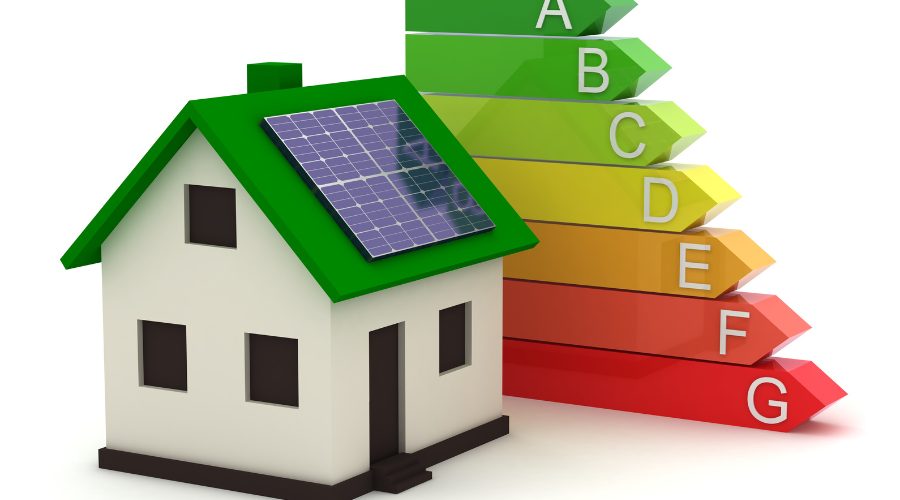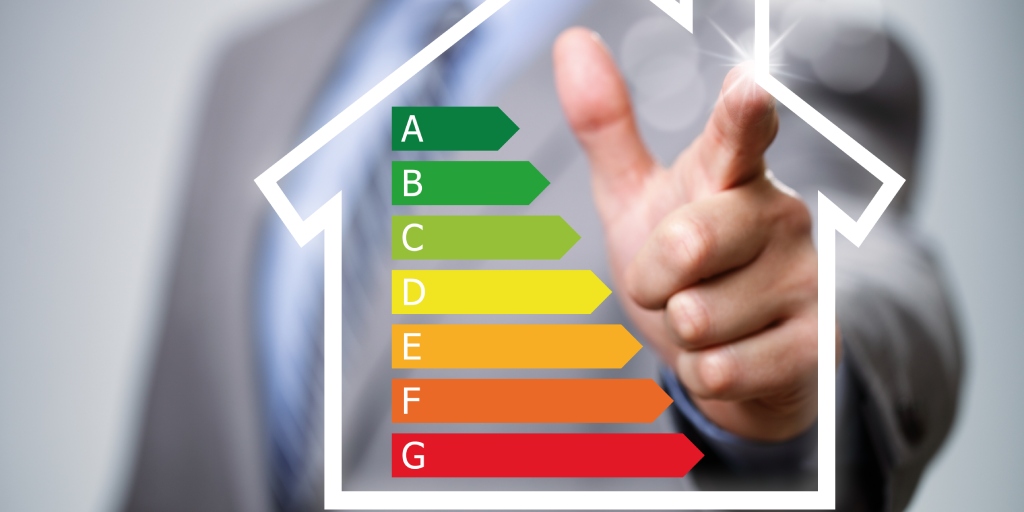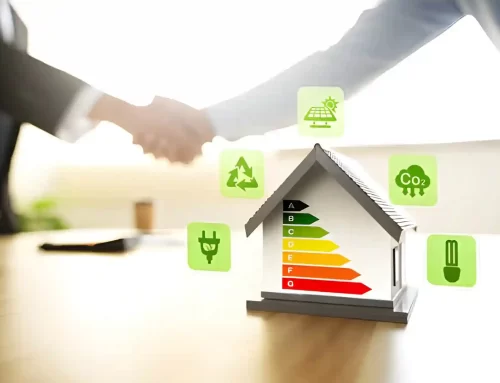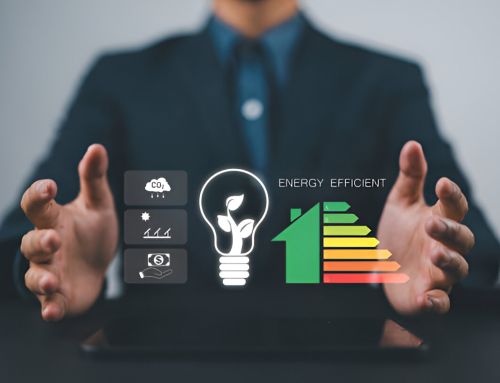
Exploring the realm of property energy efficiency, I recently encountered the term ‘EPC rating.
The EPC rating is not just a mere number; it holds the key to understanding a property’s energy efficiency and its impact on the environment and finances.Let’s What Is an Epc Rating.

So, what exactly does this rating entail, and how does it influence our choices as homeowners?
Let’s unravel the significance of EPC ratings together, shedding light on their importance and implications for sustainable living.
Defining EPC Rating
Understanding EPC ratings involves assessing a property’s energy efficiency through the Energy Performance Certificate (EPC) rating system. The EPC rating provides a comprehensive evaluation of a property’s energy performance, considering factors like energy use per square meter and CO2 emissions.
This rating system categorizes properties on a scale from A to G, where A indicates the highest efficiency level and G the lowest. Each rating (A-G) carries specific implications for energy efficiency and cost implications. A-rated properties are the most energy-efficient, leading to lower energy bills and reduced environmental impact. On the other hand, G-rated properties are the least efficient, resulting in higher energy costs and a more significant environmental footprint.
Understanding these efficiency levels is crucial for homeowners to make informed decisions about improving their property’s energy performance, reducing costs, and lessening their environmental impact.
The Importance of High EPC Rating

The significance of achieving a high EPC rating can’t be overstated in the context of property transactions and energy efficiency assessments. Having a high EPC rating offers various benefits, including increased property value, lower energy bills, and a reduced carbon footprint.
When compared to properties with lower ratings, those with higher ratings are more attractive to potential buyers and renters due to their lower running costs and environmental impact. Moreover, a high EPC rating can make a property eligible for funding schemes like the Boiler Upgrade Scheme, which provides financial assistance for energy-efficient upgrades.
To qualify for such funding, meeting specific EPC rating qualifications is essential. Therefore, ensuring a high EPC rating not only enhances the marketability of a property but also opens up opportunities for financial support and demonstrates a commitment to energy efficiency.
EPC Role in Heat Pump Switching
Moving from the emphasis on achieving a high EPC rating, the role of an Energy Performance Certificate (EPC) becomes pivotal when considering the switch to heat pump systems. EPC eligibility criteria play a significant role in determining funding qualifications for heat pump installation.
To qualify for schemes like the Boiler Upgrade Scheme offering benefits up to £7,500, homeowners must ensure their property meets EPC standards without any insulation issues. Heat pump benefits, such as increased energy efficiency and reduced carbon emissions, align with the energy efficiency impact assessed through the EPC rating.
Understanding the EPC’s influence on funding qualifications underscores the importance of improving a property’s energy performance to align with heat pump requirements. Home improvement strategies recommended by EPC assessments can guide homeowners in enhancing their property’s energy efficiency, making them eligible for funding opportunities like heat pump installations.
Available Assistance for EPC Changes
How can individuals access support for making changes to their EPC rating? Assistance options are available for those seeking to improve their EPC qualifications.
Government support programs offer funding eligibility for energy efficiency upgrades. Individuals can benefit from guidance on energy efficiency to enhance their EPC rating. By utilizing these resources, homeowners can navigate the process of improving their property’s energy performance.
Assistance is also available for qualifying for schemes like the Boiler Upgrade Scheme, which provides financial aid for heat pump installations. Understanding the requirements and criteria for these funding opportunities is crucial in ensuring successful EPC changes.
Cost Estimation for Heat Pump Installation

With the aim of providing accurate cost estimations for heat pump installation, a thorough survey is conducted to assess the suitability of the property. The installation process entails evaluating the property’s layout and energy needs to determine the most efficient heat pump type.
Energy savings are a key consideration, with the survey focusing on identifying potential efficiency improvements that the heat pump could offer. Eligibility criteria for government funding are also examined during the survey to ensure that the property meets the necessary requirements. This assessment helps homeowners understand the funding options available to them based on their property’s specifics.
Moreover, the environmental impact is taken into account, with the survey aiming to recommend energy-efficient solutions that reduce carbon emissions. By providing a comprehensive overview of the installation process, energy savings potential, eligibility criteria for funding, available funding options, and the environmental impact, the survey serves as a crucial step in determining the feasibility and benefits of heat pump installation.
Decoding EPC Ratings and Recommendations
One crucial aspect in understanding property energy efficiency is deciphering the EPC ratings and associated recommendations. EPC ratings, ranging from A (most efficient) to G (least efficient), provide a clear measure of a property’s energy performance. These ratings directly impact energy bills, carbon footprint, and property desirability.
Understanding the EPC rating scale is essential for making informed decisions to improve sustainability, enhance property energy performance, and realize energy cost savings. Each EPC rating category comes with specific recommendations for enhancing energy efficiency. By implementing these suggestions, property owners can reduce their environmental impact, lower energy consumption, and save on energy costs over time.
It’s crucial to consider EPC ratings not only for legal compliance when selling or renting a property but also for the broader implications on financial and environmental aspects. Decoding EPC ratings and following the recommended energy-saving measures can lead to a more sustainable and energy-efficient property.
Frequently Asked Questions
How Does the EPC Rating Impact Property Insurance Premiums?
The EPC rating impacts property insurance premiums by influencing energy efficiency. High ratings lead to premium savings, energy savings, and positive environmental impact. Property upgrades boost investment returns through lowered costs and increased value.
Can an EPC Rating Affect the Resale Value of a Property?
An EPC rating can significantly impact a property’s resale value by showcasing energy savings potential, guiding home improvements for better market value, highlighting environmental impact, and increasing property upgrades to attract buyers and enhance value.
Are There Any Tax Benefits Associated With Having a High EPC Rating?
Tax benefits can result from a high EPC rating, offering energy savings and financial advantages. Government incentives may include grants or reduced taxes for sustainable properties. EPC ratings align with sustainability goals and promote efficient living.
Do EPC Ratings Take Into Account the Energy Efficiency of Appliances in a Property?
EPC ratings do not directly consider appliance efficiency. They focus on the property’s overall energy efficiency, guided by building regulations. However, appliances can impact energy consumption, environmental impact, and energy savings, indirectly influencing the EPC rating.
How Often Should Homeowners Consider Updating Their EPC Rating, Even if It Hasn’t Expired Yet?
Updating my EPC rating before expiration is crucial. It may lead to cost savings, reduce environmental impact, and uphold homeowner responsibilities. Regular updates ensure accurate energy efficiency assessments and potential upgrades for optimal performance.
Conclusion
In conclusion, understanding the significance of an EPC rating is paramount for making informed decisions as homeowners. By striving for a high rating, we not only reduce our environmental footprint but also save on energy costs in the long run.
The intricate world of property energy efficiency is a journey towards a greener, more sustainable future, where EPC ratings serve as guiding beacons towards a more efficient and cost-effective living environment.
About the Author: LandlordCertificate
Related Posts
Get Social
Recent Posts
- Choosing the Right Consumer Unit for Fuse Box Installation London in Properties
- Electrical Diagnostic London: How Professional Testing Keeps Your Property Safe and Compliant
- Asbestos Management Survey London: Update Your Property Records
- Gas Safety Certificate London: Why Regular Checks Save Money Long-Term
- FRA London Explained: How a Professional Fire Risk Assessment Keeps You Compliant and Safe













